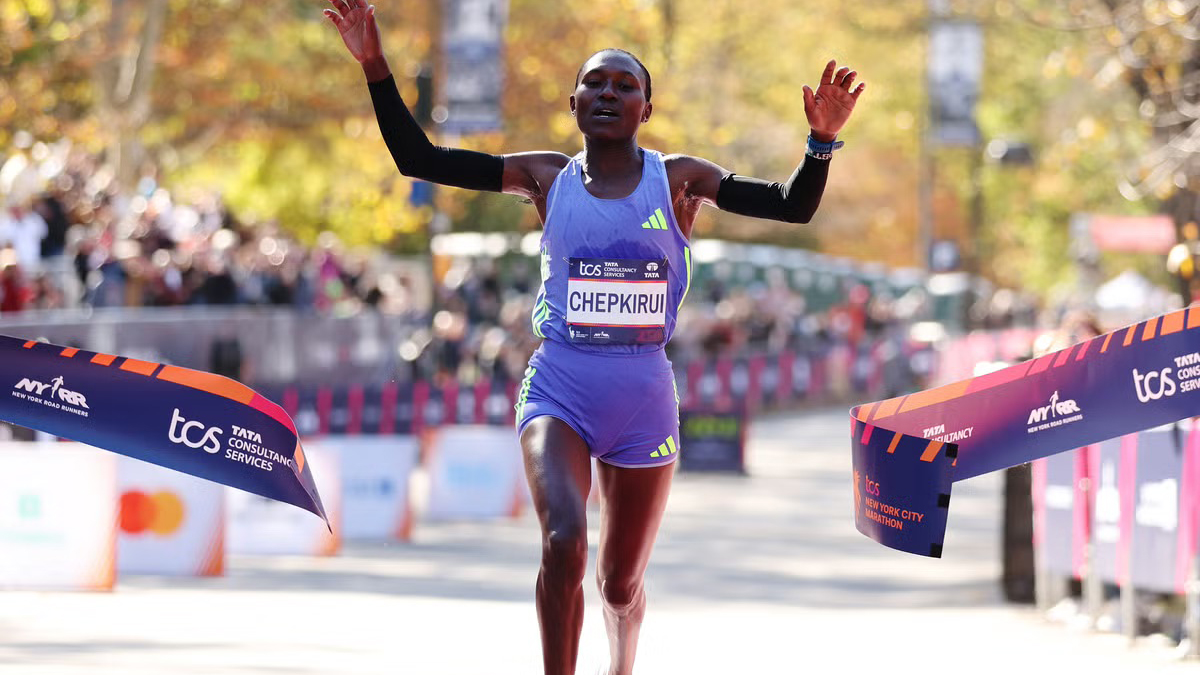This year’s New York Marathon was a triumph for Kenyan women, who swept this year’s top three spots. But as I watched Sheila Chepkirui, Hellen Obiri, and Vivian Cheruiyot claim victory, I couldn’t help remembering some other runners whose lives ended tragically.
East African countries like Uganda, Kenya, and Ethiopia are home to some of the world’s greatest runners and take pride in athletes who achieve international acclaim. But for female athletes, success can be fatal.
This year, Ugandan Olympic marathoner Rebecca Cheptegei died from injuries inflicted when her boyfriend poured gasoline over her and set her on fire. Tragically, she was the third runner murdered by a male partner in the past three years: in 2021, Kenyan Olympian Agnes Tirop was stabbed to death and international marathoner Damaris Mutua was strangled.
Unfortunately, these stories illustrate the difficulty some men can have when women succeed.
While Cheptegei’s murder has been attributed to a land dispute, it’s critical to note that this land was part of her efforts to invest in her athletic future. I can’t help but think her success — her fame and financial independence — was the true trigger. Like many before her, she outshone her partner. And for some men, that’s unforgivable.
The threat of women’s success to the male ego isn’t limited to Africa. Several of the stars of Lives of Mormon Wives spoke of tension in their relationships after they became the primary breadwinners due to their success on TikTok.
In fact, the pattern is universal: when women earn more than men, it creates conflict.
Having lived and worked in developing countries, I’ve seen this dynamic unfold repeatedly. Instead of basing goals on their talents and ambitions, women limit themselves to what they believe their husbands or partners will tolerate.
In Uganda, I worked with some of the most capable, intelligent women I’ve ever met. But, many hesitated to accept high-paying international jobs that could transform their families’ futures because they feared their husbands’ disapproval. My male colleagues never hesitated when presented with similar choices.
For rural women living in poverty, the situation is even more dire. In my work on women’s economic empowerment projects across Africa and Asia, every opportunity had to pass through the gatekeepers of male approval, requiring careful navigation around what husbands or fathers would allow. Giving a woman a smartphone could boost her income, but it could also lead to a beating and the loss of the phone if her husband didn’t already own one.
Even worse than the restrictions men place on women are the limitations women place on themselves. Women across the globe make large and small decisions based on what will be acceptable to the men in their lives. And when they step outside these carefully defined roles, when they succeed too much, when they grow too tall, they risk a violent backlash. That backlash could be a broken Mormon marriage or a jerrycan of gasoline and a match.
There are some notable exceptions. We find it refreshing that Vice President Kamala Harris’ husband Doug Emhoff has graciously stepped back to support her career. “Isn’t it sweet how Doug supports Kamala?” my mom says. But shouldn’t this be normal? The cute story about how Doug missed Kamala’s call because he was at Soul Cycle has a serious takeaway: Kamala agreed to run for the presidency without getting her husband’s permission. Good for her — she didn’t need it!
I know that as vile as we find violence against women, it is a symptom of a larger problem: some men’s belief that they have the right to control women’s behavior. Some exert control through violence, some through financial dominance, and others through the threat of divorce and social isolation. Whatever the method, the goal is the same: to keep the women in their lives from outshining them.
This year’s Olympics gave us two stark examples. No one celebrated Olympian Tara Davis-Woodhall’s achievements more than her husband, Paralympian Hunter Woodhall, but Rebecca Cheptegei’s success proved a fatal threat to her partner’s sense of manhood.
The work needed to change this is slow and painstaking, but it is possible. And this is men’s work. We need more men like Doug Emhoff and Hunter Woodhall to openly support their wives’ success. We need more conversations within households about how entire families benefit when a woman thrives. And we need men to congratulate each other when their wives succeed, instead of questioning their masculinity. The bottom line is we need to redefine manhood in a way that doesn’t involve dominating women.



